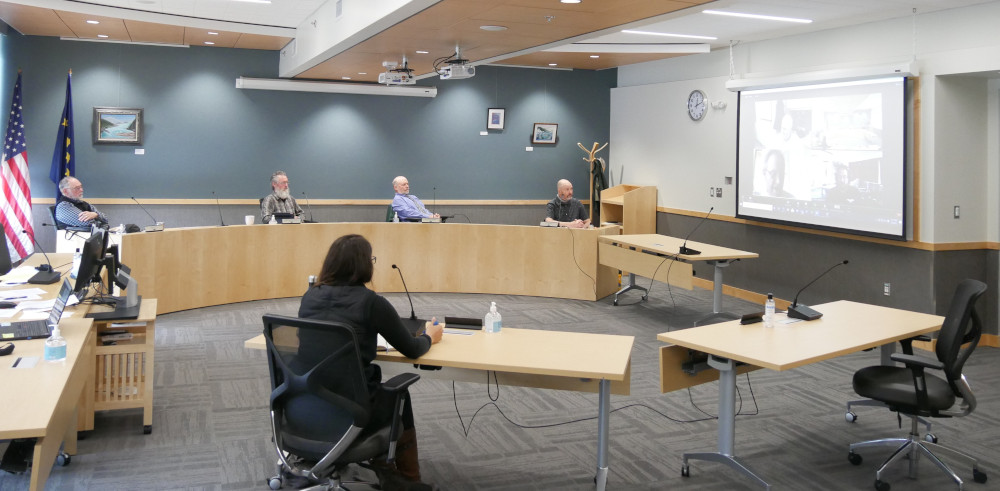
Petersburg’s borough assembly this week changed local law on a minimum requirement for in-person meeting for elected boards and commissions.
The vote Monday removes a requirement that a minimum of four assembly members be present at a meeting in person in order to vote on anything. The change will allow video or teleconference attendance to count toward that minimum, something that was permitted temporarily in the past year under an emergency declaration for the pandemic.
Supporters of the move say it will lessen the chance of canceled meetings if elected officials are out of town or avoiding indoor spaces for health reasons.
“I’m going to be supporting this because in my mind this just does provide more flexibility for keeping borough business moving even when life takes us other places,” assembly member Chelsea Tremblay said. “I do feel assured that Roberts Rules of Order keeps the integrity of assembly decisions and assembly business moving whether or not it’s in person or teleconference.”
A seven-person group like the assembly would still need at least four people attending either in-person or by videoconference in order to vote on anything.
The change as drafted only mentions the borough assembly. But borough staff say language in the charter will make it apply to the planning commission and other local boards.
Monday’s vote was not unanimous. Mayor Mark Jensen and assembly member Bob Lynn voted no, but it passed on a 5-2 vote. Opponents have concerns that the change could make it more difficult for the public to access their representatives in local government face-to-face.
The borough has an upgraded audio visual system in assembly chambers. While it still suffers some problems with sound quality, it has made video conferencing possible, along with a mix of in-person and remote attendance.
In other decisions Monday, the assembly gave the second of three approvals to a proposed ordinance for recouping the cost of unpaid utility bills or cleanup of nuisances on private property. That would allow the borough to record a lien (leen) against property for unpaid bills or the clean up costs for sewage or garbage spilled on someone’s land. The borough already has this tool for land owners who fail to pay property tax but this adds additional situations where the legal filing could be applied. It can lead to the borough seizing and selling off that land.
That change passed unanimously in second reading and needs one more approval before it takes effect.









